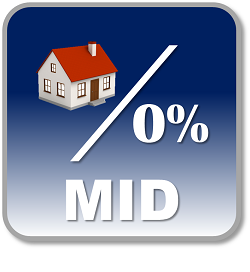The Tax Advantages of Owning a Home

Owning a home is part of the “American Dream”. Working hard, saving money, finding the right house, and going through the mortgage process all pays off when you move into your own home and begin to enjoy the perks that come with what is likely to be your largest financial investment. Some of those perks come in the form of tax breaks. And with tax season around the corner, it’s time to educate yourself about those tax breaks. You might be surprised to discover that many of your biggest home-related expenses are often tax deductible. Here are the top four tax breaks for homeowners:
- MORTGAGE INTEREST
The most significant tax break you’ll get is a mortgage interest deduction, which is nice since a huge part of your monthly mortgage payment goes towards paying off interest for a while after your purchase.All the interest you pay during the tax year will be deductible. However, if you own properties with mortgage balances over a million dollars, the IRS will limit your deductible interest.If you own a second home, your interest for that home is also deductible as long as you are residing there part of the year.If you stay there less than 14 days out of the year or less than 10% of the number of days you rent it out, the IRS may consider it a residential rental property, and in that case, you will not be able to take an interest deduction. Mortgage Interest Deduction
- REAL ESTATE TAXES
Another large deduction you get to make as a homeowner is on your property taxes. As a homeowner, you will always have to pay some form of real estate tax. If you have an escrow account, which most mortgages do, it means you have been paying a portion of your property tax bill for the year as part of your monthly mortgage payment. At the end of the tax year, your lender will send you a statement, which will tell you what you have paid in taxes and interest and how much went into your escrow account to be used toward taxes. You will be able to deduct the amount your lender paid from your escrow toward taxes. Escrow
- POINTS
When you purchase a home, you have the option to pay mortgage points to your lender to lower your interest rate.A point is typically 1% of the loan price, so if you bought or built a new home that cost $300,000 and you paid your lender for one origination point, this should enable you to deduct the $3,000 in closing costs paid from your taxes for the year of the home purchase.
- ENERGY TAX CREDITS
Making improvements to the energy efficiency of your home will not only save you money on energy costs, it may also help you qualify for a tax credit. Tax credits can be better than tax deductions as they are a dollar-for-dollar savings no matter what tax bracket you are in.Things like upgrading windows, roofing, appliances and more with energy efficient equipment will often count toward a tax credit. But since the IRS does change things from year to year, be sure to check with them beforehand so you will know what tax credits you qualify for.
Become a homeowner this year and take advantage of these tax credits! If you are in the market to buy or sell a home, let Sandra Nickel and her Hat Team of Professionals assist you with all your real estate needs! Call them today at 334-834-1500!
Photo Credit: tmcfinancing.com



 Originally, in 1913 with the Sixteenth Amendment, Income Tax allowed a deduction on any interest paid by a taxpayer. Prior to World War I, most interest was paid for business purposes and very little paid by individuals. Credit cards, revolving credit, student loans and home equity loans that would charge interest would not become popular for decades.
Originally, in 1913 with the Sixteenth Amendment, Income Tax allowed a deduction on any interest paid by a taxpayer. Prior to World War I, most interest was paid for business purposes and very little paid by individuals. Credit cards, revolving credit, student loans and home equity loans that would charge interest would not become popular for decades.






